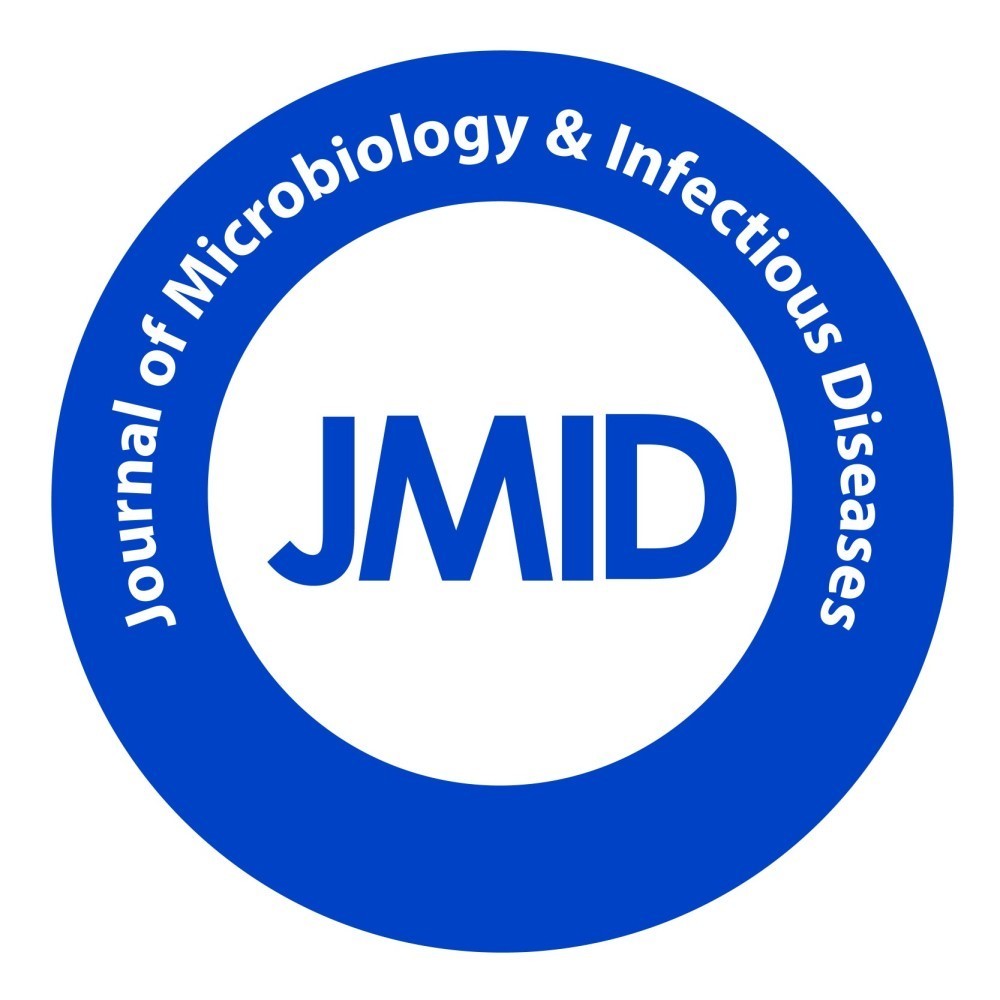
Publication Ethics
Journal of Microbiology and Infectious Diseases requires all authors and peer reviewers to declare any conflict of interest associated with the submission or review of an article.
Journal of Microbiology and Infectious Diseases has adopted the Uniform Requirements for Manuscripts Submitted to Biomedical Journals 2001, as adopted by the International Committee of Medical Journal Editors (ICMJE) (http://www.icmje.org).
Conflict-of-interest statement
Authors are responsible for disclosing all financial and personal relationships that might bias their work. Financial relationships (such as employment, consultancies, stock ownership, honoraria, paid expert testimony) are the most easily identifiable conflicts of interest and the most likely to undermine the credibility of the journal. To prevent ambiguity, authors must state explicitly in the letter accompanying the submitted manuscript whether potential conflicts do or do not exist.
Statement of informed consent
Analytical investigations on human participants must include a statement in the Methods section that participants gave their informed consent. It is journal policy that participant anonymity must be preserved in all cases. Research on experimental animals must be approved by an appropriate institutional ethics approval committee and the appropriate approval number must be stated in the Methods section.
Protection of human and animal rights
For experimental, clinical, and drug research an Ethics Committee report consistent with international agreements on human and animal rights (Helsinki Declaration of 1975, revised 2002 -http://www.wma.net/e/policy/b3.htm and “Guide for the care and use of laboratory animals - www.nap.edu/catalog/5140.html) and an informed consent of patients are required.
Funding
Authors must include a statement in the Methods section that identifies any funding sources for their work.
Risk assessment
Authors must include a statement in the Methods section of compliance to any risk assessment procedures required by their organizations.
Peer-review process
All manuscripts are submitted for expert peer review. The journal uses a double-blind peer-review system, with two to three referees (members of the Editorial Committee and/or external consultants) independently evaluating all manuscripts. The referees will make Suggestions as to acceptance, revision or rejection of manuscripts. In certain cases, specialist peer reviewers (such as statisticians) will be used, for example, for review of study design features, conduct of the study, presentation of data, statistical analysis, or conclusions. If the referees indicate that a manuscript should be revised, authors will be requested to revise the manuscript along the lines indicated by the referees. Occasionally, resubmitted manuscripts may undergo further peer review. Once revisions are completed and approved by the Managing Editor, the corresponding author is notified that an article has been accepted for publication. Rejected manuscripts will not be returned to authors. The average length of time from acceptance of manuscript to publication is 6 months.
We also check for plagiarism and research fabrication (using iThenticate) as JMID reserves the right to use plagiarism detecting software to screen submitted papers at all times; falsification (manipulation of existing research data, tables, or images) and improper use of animals in research. In accordance with the code of conduct we will report any cases of suspected plagiarism or duplicate publishing.
The publication of an article in a peer-reviewed journal is an essential building block in the development of a coherent and respected network of knowledge. It is a direct reflection of the quality of the work of the authors and the institutions that support them. Peer-reviewed articles support and embody the scientific method. It is therefore important to agree upon standards of expected ethical behavior for all parties involved in the act of publishing: the author, the journal editor, the peer reviewer, and the publisher.
JMID is committed to the highest standards of publication ethics and takes all measures against any publication malpractices.
All parties involved in publishing - the authors, the journal editors, the peer reviewers and the publisher - agree with standards of ethical behavior.
Author Responsibilities:
Authors must ensure that they have written original works. In addition, they must ensure that the manuscript has not been published elsewhere. Any work or words of other authors, contributors, or sources should be appropriately credited and referenced. Authors are also responsible for submitting articles in English. Authors submitting their works to the journal for publication as original articles confirm that the submitted works represent their authors’ contributions and have not been copied or plagiarized in whole or in part from other works without clearly citing. Any work or words of other authors, contributors, or sources (including online sites) should be appropriately credited and referenced. All authors should disclose financial or other conflict of interest that might influence the results or interpretation of their manuscript (financial support for the project should be disclosed). When an author discovers a significant error or inaccuracy in his/her own published work, it is the author’s obligation to promptly notify the journal editor and cooperate with the editor to retract or correct the paper. An author agrees to the license agreement before submitting the article. All articles must be submitted using online submission procedure. Submitting a paper simultaneously to more than one publication at a time is a breach of publications ethics.
Editors Responsibilities:
Editors must ensure a fair single-blind peer-review of the submitted articles for publication. They will strive to prevent any potential conflict of interests between the author and editorial and review personnel. Editors will also ensure that all the information related to submitted manuscripts is kept as confidential before publishing. Editor-in-Chief will coordinate the work of the editors.
Reviewers Responsibilities:
Reviewers evaluate manuscripts based on their contents. They must ensure that all the information related to submitted manuscripts is kept as confidential. They must evaluate the submitted works objectively as well as present clearly their opinions on the works in a clear way in the review form. Reviewers must bring to the attention of the Editor-in-Chief any information that may be reason to reject publication of a manuscript. A reviewer who feels unqualified to review the research reported in a manuscript or knows that its prompt review will be impossible should notify the Editor-in-Chief and excuse himself from the review process.







